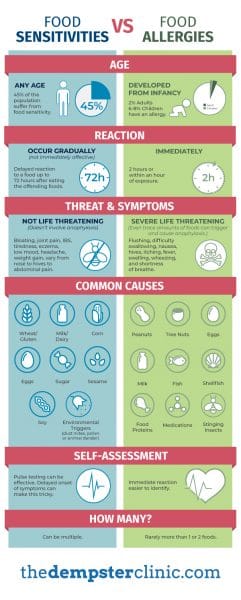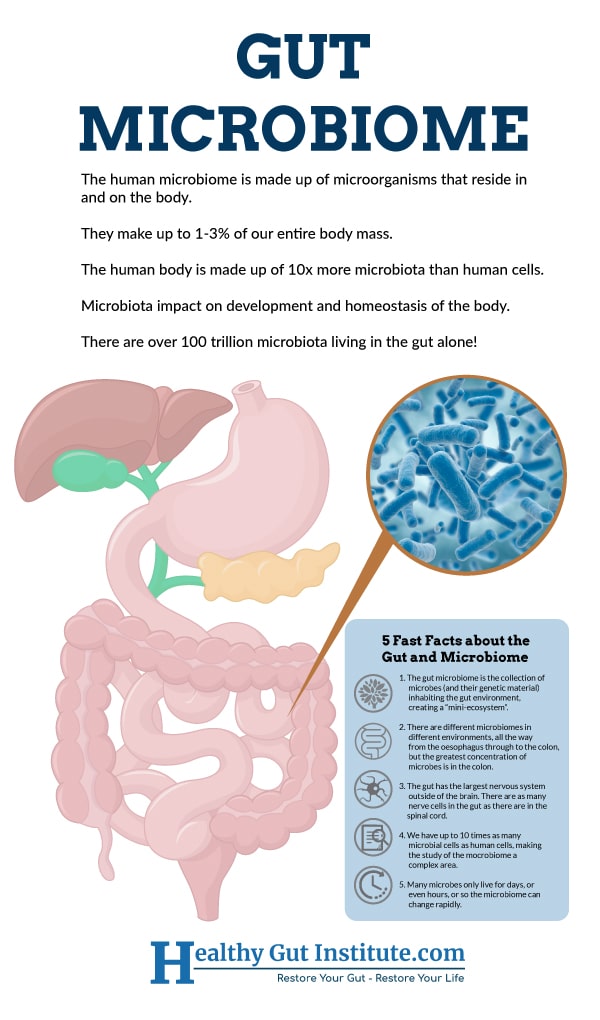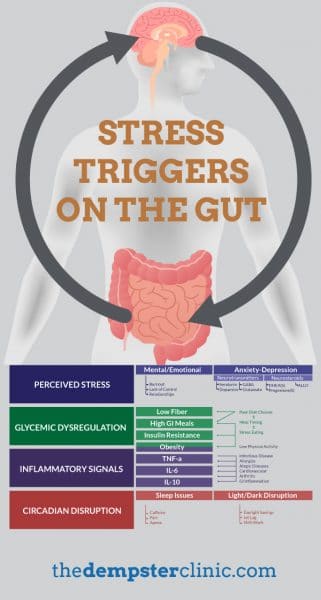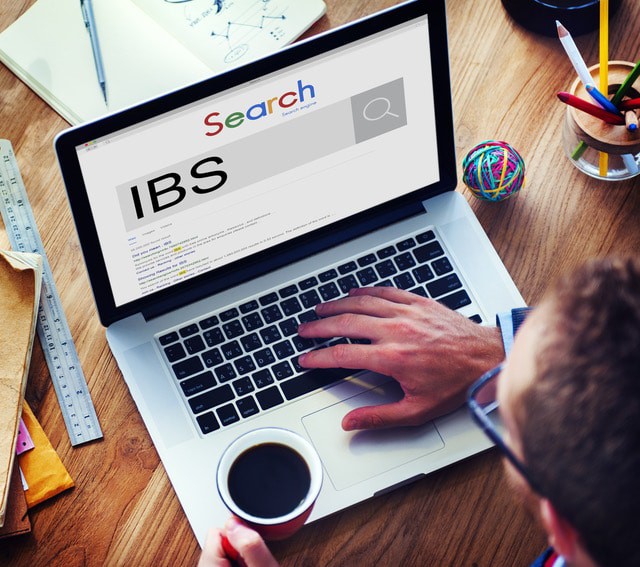Most of us have heard of Irritable Bowel Syndrome, or IBS as it is affectionately known. In fact, many of you might actually be dealing with this stubborn and degrading condition as 1 in 5 people suffer from this annoying condition. You know if you have IBS, with its numerous symptoms including bloating or gas, distention, constipation, diarrhea, cramping, and most likely, running to the bathroom after you eat. It is also one that western medicine offers no permanent cure for.
I’ve been in practice for almost a decade, and I’ve seen a tremendous amount of patients with all sorts of medical conditions. What’s the one that I seen the absolute most of? You guessed it… In fact, many of my patients who are referred to me for serious conditions such as; autoimmune illness, heart disease, cancer, etc. often suffer from a plethora of digestive complaints.
The gut is the foundation of all health. As one of my professors used to say proudly ‘life and death both begin in the bowel!’ Now please don’t fret – those with IBS are not dealing with a life-threatening condition. However, optimizing your gut health is always a tremendous objective to help feel, think and look your best. This is where essential nutrients for life are absorbed and waste is removed. Further, 80% of our immune system is located in the gut, and the majority of our neurotransmitters (molecules that make us happy, focused, energized) are produced here. Below are my ‘Top 5 Ways to Cure Your IBS Today’.
1. Remove hidden food sensitivities/allergies
One of the biggest triggers of IBS symptoms are the foods we eat. Unlike traditional allergies (which cause an immediate reaction and trigger an IgE immune response) food sensitivities can take up to 3 weeks after being ingested to create problems. Tough to figure out on your own, right? A food sensitivity triggers a delayed immune response by increasing IgG, IgA, and IgM antibodies. Common trigger foods for IBS are gluten and dairy, however it is possible to react to ANY food. The testing we run often reveals many other foods as culprits, even ‘healthy’ foods such as almonds and broccoli! A monumental paper published in the prestigious British Medical Journal has shown a correlation between removing food sensitivities and improvement of IBS symptoms. A food sensitivity can create many symptoms, the most common being digestive issues such as; gas, bloating, heartburn, diarrhea, constipation, etc. I recommend either an elimination/re-introduction diet (which can be quite tedious and time consuming) or a specific food sensitivity blood test to measure reactions the foods you eat.

2. Nurture Your Microbiome

Here’s a fact for the day… We have 100x more bacterial than human DNA in us. Think about that for a moment – does this mean that we are more bacteria than human?? There might be a case here… In fact, there are 100 trillion bacterial cells in our body (10x more than our entire population of human cells), and over 500 types of bacteria. There are good guys, bad guys, and very bad guys. As a result, our gut microbiome has a tremendous impact on our overall health. An imbalance in our microflora can create excess gas, bloating, inconsistent bowel movements, cramping, etc. This can be due to yeast overgrowth, parasite infestation, and bacterial infection. Small intestinal bacterial overgrowth (SIBO) is becoming more widely identified as a problem for IBS. A landmark paper in JAMA provides a new map on how microbes impact IBS. Medications such as antibiotics, steroids, NSAID’s (aspirin) all impair and reduce our healthy microbes. Daily exposure to; alcohol, chlorine, and even sugar also have a large impact on this delicate balancing act. Simple ways to combat these assaults are to; increase fermented foods into your diet (i.e. sauerkraut, kimchi, etc), avoid unnecessary medications, avoid antibiotic fed animal products, and eliminate sugar. Finally, most IBS patients benefit tremendously by taking a high strength, professional level probiotic daily.
3. Get stress in check
Our gut is our 2nd brain. In fact, there is almost as much nervous tissue in our GI system as there is in the rest of our body. A highway of nerve tissue runs from our brain directly to our GI tract – the vagus nerve. It is this nerve that is responsible for that gut issues that occur right before that big speech, going bungee jumping, or just everyday stress and anxiety. We all hear about ‘stress’ and how this is not good for our health. There is ample research supporting these claims, especially stress being linked to IBS. Yoga, meditation, and deep breathing exercises are very simple ways to create stress ‘buffers’, and can be taken with you everywhere and there are many simple and accessible resources online.

4. Detox To Thrive
Despite our best intentions, we live in a toxic soup. Even if we eat organic foods, use toxic free bedding, avoid anti-perspirant and drive a Prius – we continue to be bombarded by toxins every day. What saves us from drowning in these volatile agents are our kidneys, liver, lymphatics, and you guessed it – our bowels. These are detox organs and without them – we die. The proximity of our liver to our digestive tract is a critical factor for optimal bowel function. If our liver is over-burdened with toxic debris, congestion and inefficiency of the intestinal tract ensues often creating many of the symptoms associated with IBS. One of my most common treatments for my new IBS patients is to help them clean their liver in an intense 1 week program of intense liver detoxification support and only eating organic, green vegetables. Yuck you may say, but many of my IBS patients find it a powerful game changer. Anything to reduce the heavy workload on your liver and facilitating the breakdown and removal of toxic waste from our body – they better EVERYTHING functions, especially the digestive system.
5. Detect and Fix Nutrient Deficiencies
Nutrients are the building blocks for life and the catalysts for our body to function optimally. Without optimal nutrient levels, we are at the mercy of our dietary, emotional and environmental assaults. Another way of saying this is without optimal nutrient levels your ‘force field’ is down, thus increasing your susceptibility to cellular injury and ultimately illness. Nutrients are critical in the formation of digestive enzymes. Without these power house molecules, we often feel gassy, bloated and distended. Taking an enzyme supplement is often helpful, however to treat the root cause of IBS – identify and correct any nutrient deficiencies. Functional medicine offers advanced lab tests that accurately identify deficiencies, thus providing a ‘road map’ as to what nutrients need additional support. By detecting and correcting your nutritional biochemistry, you are on your way to better digestive, and overall health.
Yours in Health,
Dr. John Dempster, ND,
FAARFM, ABAAHP


